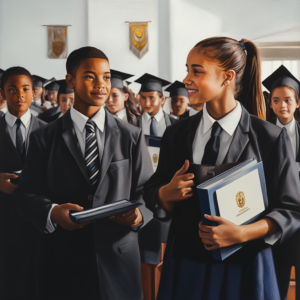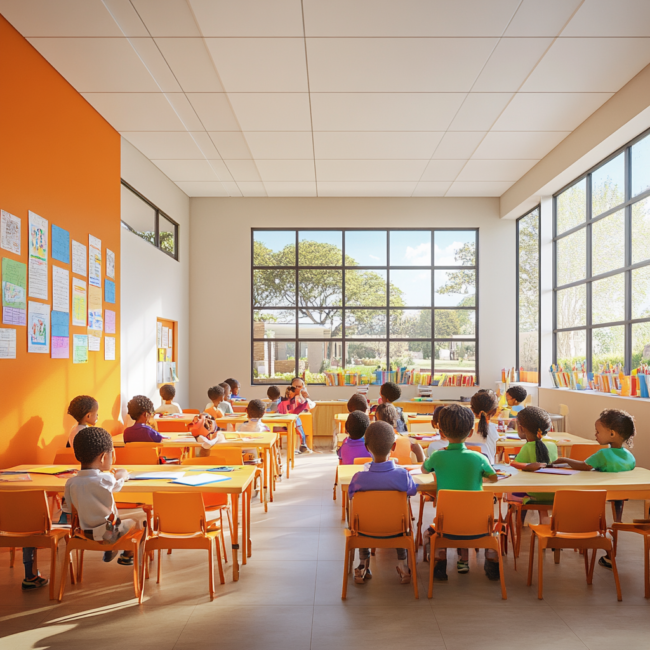Private Schools in South Africa
Private schools in South Africa have long been a topic of interest for parents seeking quality education for their children. Unlike public schools, private institutions often offer smaller class sizes, specialized curricula, and state-of-the-art facilities, all of which contribute to a more tailored educational experience. These elements make private schools an attractive option for many parents, but do they truly offer a better education?
In South Africa, private schools vary greatly, from prestigious institutions with long histories to smaller, newly established schools. Generally, they tend to focus more on holistic education, placing emphasis on both academic performance and personal development. Parents are often drawn to the promise of an enriched learning environment, where children can develop critical thinking skills and engage in a wider range of activities.
However, the perception of quality comes at a cost. Private education in South Africa is often significantly more expensive than public schooling, which can limit access to families with higher incomes. Despite this, many parents see this as a worthwhile investment in their child’s future.
In a nation with a diverse cultural landscape, private schools also often provide various languages of instruction and advanced technology integration, catering to the needs and preferences of different families. This adaptability and focus on excellence help boost their reputation.
Navigating the choice between private and public schooling involves weighing multiple factors, but understanding the distinctive offerings of private schools is crucial in making an informed decision.
Comparing Academic Performance: Private vs. Public Schools
When evaluating the academic performance of private and public schools in South Africa, several factors come into play. Parents often find themselves weighing the perceived benefits of smaller class sizes and individualized attention in private schools against the more diverse environment of public schools. Academic results, which are a primary concern for many parents, tend to favour private institutions, especially at the secondary level.
Private schools in South Africa typically offer more rigorous curriculums that align closely with international standards, allowing students to compete globally. These institutions often achieve higher matriculation pass rates and university entrance percentages. This success can be attributed to factors such as highly qualified teachers, better resources, and a focus on accountability and performance.
Public schools, despite their challenges, also produce high-performing students, particularly those in well-resourced areas where they receive adequate funding and support. However, disparities in resource allocation across regions often lead to inconsistent academic performance.
While private schools may lead in academic metrics, it’s essential to remember that success is influenced by various elements, including family support and student motivation. Therefore, when considering the academic performance between private and public schools, parents should also consider what environment will best support their child’s individual learning style and personal development. The decision should ultimately focus on finding a balance between quality education and a nurturing environment.
Curriculum and Teaching Approaches in Private Schools
In South Africa, private schools often provide a unique edge through diverse and state-of-the-art curricula. Unlike public schools, private institutions have the flexibility to adopt international programs like the International Baccalaureate (IB) or the Cambridge curriculum, offering students a global perspective and broader learning opportunities. This often results in a more holistic education that goes beyond textbook learning.
Private schools generally emphasize a student-centred approach, focusing on individual needs and fostering independent thinking. Smaller class sizes help teachers give more personalized attention, catering to different learning styles and paces. This can lead to higher student engagement and better academic outcomes, as teachers can adjust their strategies to optimize learning for each student.
Innovative teaching methods in private schools often include project-based learning, which encourages critical thinking and problem-solving skills. Additionally, many private schools place importance on values such as leadership, teamwork, and communication, integrating them into daily learning experiences.
Moreover, with often better access to technology and resources, private school students can benefit from digital learning tools, making learning interactive and current with global educational standards. Enhanced facilities, such as science labs and libraries, provide practical learning experiences, enriching the curriculum beyond the theoretical aspects.
 Ultimately, the curriculum and teaching approaches in private schools in South Africa aim to provide students with a well-rounded education, preparing them for future academic pursuits and global citizenship.
Ultimately, the curriculum and teaching approaches in private schools in South Africa aim to provide students with a well-rounded education, preparing them for future academic pursuits and global citizenship.
Private schools in South Africa often offer a wide range of extracurricular activities and boast superior facilities compared to many public schools. These extracurricular activities provide students with opportunities to explore interests beyond the academic curriculum, promoting well-rounded development. Whether it’s sports, music, drama, or clubs devoted to specific interests like robotics or debate, private schools often have the resources to support a variety of student pursuits.
The advanced facilities in private schools are another notable advantage. Many are equipped with state-of-the-art science labs, art studios, sports fields, and auditoriums. These facilities not only enhance the learning experience but also provide students with the tools they need to excel in various fields. Access to such resources can be crucial in fostering talent and passion, giving students an edge in college applications and future career prospects.
Moreover, the emphasis on extracurricular involvement helps in building essential life skills such as teamwork, leadership, and time management. Students who participate in these activities often show improved academic performance and higher self-esteem. Additionally, the smaller class sizes typical of private schools ensure more personalized attention, which can be pivotal in nurturing each student’s unique abilities.
However, while the benefits are clear, it’s important for parents to consider their child’s interests and needs. The prestige of facilities and the breadth of extracurricular options are only beneficial if they align with the child’s passions and aspirations. By thoughtfully evaluating these factors, families can make informed decisions that best support their child’s educational journey.
Private education in South Africa is often perceived as a premium offering, but understanding its costs and accessibility is crucial for making an informed decision. Tuition fees at private schools can vary significantly depending on the institution’s reputation, location, and facilities. Elite private schools often come with high tuition fees that can stretch family budgets. These fees usually cover a range of additional services, including advanced sports facilities, music programs, and smaller class sizes, which contribute to a more personalized learning experience.
However, it’s not just about the tuition fees. Additional costs often include uniforms, textbooks, extracurricular activities, and transportation, which can add up quickly. For families considering private schooling, it’s important to take a holistic view of all potential expenses to ensure sustainability over the long term.
Accessibility is another key consideration. While private schools are typically concentrated in urban areas, rural families may have fewer choices and face challenges in accessing these educational opportunities. Some schools offer scholarships and financial aid to make education more accessible, but these are often limited and highly competitive.
Ultimately, the decision to choose private education should reflect both the financial realities of a family and the specific needs of the child. Parents are encouraged to weigh the benefits of a tailored education experience against the financial commitment required, ensuring that the choice aligns with their child’s unique learning requirements and family priorities.
Choosing the right school for your child is a crucial decision that requires careful consideration. To make an informed choice between private and public education in South Africa, it’s essential to weigh several factors against your child’s needs and your family’s circumstances.
First, consider the learning environment. Private schools often provide smaller class sizes, which can mean more personalized attention for each student. If your child thrives in settings where they can interact closely with teachers, this could be a significant benefit.
Next, think about the extracurricular opportunities available. Private schools tend to offer a wider array of activities that can help develop different skills beyond the classroom. If your child enjoys sports, arts, or special interest clubs, ensure the school you choose supports these interests.
The curriculum is another critical factor. Private schools often have the flexibility to adopt diverse teaching methods and curriculums, which might align better with your child’s learning style. Research how each school’s curriculum matches what you believe is best for your child’s academic growth.
Cost and accessibility also play a significant role. Private education can be expensive, so it’s important to assess whether your financial resources align with the tuition fees and other associated costs. Look into scholarship opportunities if cost is a concern and consider the school’s location and your ability to transport your child there daily.
Ultimately, the best school is one that aligns academically, socially, and financially with your child’s and family’s needs. Take the time to visit schools, speak with educators and parents, and perhaps most importantly, consider your child’s own preferences and feelings during the decision-making process.

